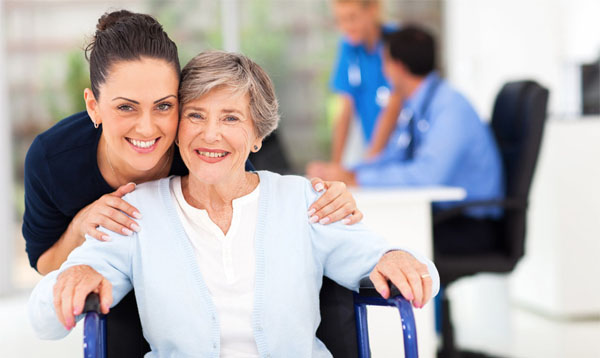Mandatory Training: Understanding Essential Training for Nurses and Care Workers
By Space Coast Daily // March 8, 2024
In healthcare and social care, being really dedicated and caring is super important.
But to make things even better, it’s essential to have a strong base of knowledge and skills. That is where mandatory care courses come in for nurses and care workers.
These important courses give them the tools they need not just to do their jobs well but also to make sure patients get the best care possible.
Understanding Each Essential Training Module:
Let’s delve into each of the mandatory training topics and understand how they contribute to building exceptional caregivers:
1. Blood Transfusion Processes:
- What you’ll learn: Safe protocols for blood transfusion, including blood typing, cross-matching, administration procedures, monitoring for potential complications, and post-transfusion documentation.
- Impact on patient care: By following proper blood transfusion procedures, nurses and care workers ensure patient safety and minimize the risk of potentially life-threatening reactions.
2. Child Protection:
- What you’ll learn: Recognizing signs and symptoms of child abuse and neglect, understanding reporting procedures, legal frameworks, safeguarding principles, and how to support children who may be at risk.
- Impact on patient care: This training empowers nurses and care workers to be vigilant advocates for children, protecting them from harm and ensuring their well-being. It fosters a safe and supportive environment for all children receiving care.
3. Clinical Record Keeping:
- What you’ll learn: Importance of accurate and complete medical recordkeeping, maintaining patient records according to legal and ethical standards, documenting observations, assessments, interventions, and patient responses. This is why nurses and carers need record keeping training.
- Impact on patient care: Accurate and detailed records are crucial for providing continuity of care, ensuring effective communication among healthcare professionals, and making informed decisions about patient treatment. This training equips nurses and care workers to maintain meticulous records, facilitating optimal care coordination.
4. Complaints Handling:
- What you’ll learn: Effective communication strategies for dealing with patient and family complaints, understanding relevant procedures for investigating and resolving concerns, and maintaining professionalism and empathy throughout the process.
- Impact on patient care: By effectively handling complaints, nurses and care workers demonstrate a commitment to continuous improvement and ensuring patient satisfaction. This fosters trust and strengthens communication, leading to better patient experiences.
5. Conflict Resolution (Managing Violence and Aggression):
- What you’ll learn: De-escalation techniques, verbal and non-verbal communication strategies, understanding the triggers and causes of aggressive behavior, and maintaining personal safety in potentially volatile situations.
- Impact on patient care: Knowing how to manage conflict effectively helps create a safe environment for both patients and caregivers. Nurses and care workers can use these skills to de-escalate situations, minimize the risk of harm, and provide care in a calm and respectful manner.
6. Patient Consent:
- What you’ll learn: Understanding the principles of informed consent, ensuring patients have all necessary information to make informed decisions about their care, respecting patient autonomy and decision-making rights, and obtaining valid consent in accordance with legal frameworks.
- Impact on patient care: By obtaining informed consent, nurses and care workers empower patients to be active participants in their own care. This fosters trust, respects patient autonomy, and ensures ethical and responsible care delivery.
7. Display and Screen Equipment:
- What you’ll learn: Safe operation and maintenance of various medical displays and screens used in patient care, identifying potential risks associated with equipment malfunction, and following established protocols for cleaning and disinfection.
- Impact on patient care: Proper use and maintenance of equipment are crucial for ensuring accurate diagnoses and safe treatment procedures. This training equips nurses and care workers to use equipment effectively while minimizing the risk of errors or malfunctions that could compromise patient safety.
8. Dementia Awareness:
- What you’ll learn: Understanding the different types and stages of dementia, recognizing signs and symptoms, providing effective communication and care strategies for individuals with dementia, and promoting their well-being and independence.
- Impact on patient care: By being aware of dementia and its impact, nurses and care workers can provide compassionate and person-centered care that meets the specific needs and challenges faced by individuals living with dementia.
9. Equality Awareness and Eliminating Bullying and Harassment:
- What you’ll learn: The importance of treating everyone with respect and dignity, regardless of background or differences, understanding the various forms of discrimination and harassment, promoting a culture of inclusion, and knowing appropriate channels for reporting any discriminatory behavior.
- Impact on patient care: Equality awareness fosters a welcoming and supportive environment for all patients, regardless of their background or identity. This training equips nurses and care workers to ensure that everyone receives fair and respectful care, free from discrimination or harassment.
10. Incident Reporting:
- What you’ll learn: Importance of reporting incidents, such as near misses, accidents, and errors, understanding different reporting procedures, filling out incident reports accurately, and contributing to continuous improvement by learning from past incidents.
- Impact on patient care: Reporting incidents allows for thorough investigation, identification of potential risks, and implementation of corrective measures to prevent future occurrences. This fosters a culture of safety and continuous improvement, ultimately leading to better patient outcomes.
11. Hand Hygiene:
- What you’ll learn: Proper handwashing techniques, understanding the importance of hand hygiene in preventing the spread of infection, using alcohol-based hand rub when appropriate, and adhering to established infection control protocols.
- Impact on patient care: Hand hygiene is one of the most effective ways to prevent the spread of healthcare-associated infections (HAIs). This HAI training ensures that nurses and care workers are equipped to practice proper hand hygiene consistently, safeguarding both themselves and their patients from the risk of infection.
12. Hazardous Substances:
- What you’ll learn: Identifying and safely handling hazardous substances commonly used in healthcare settings, understanding the risks associated with exposure, following safe storage and disposal procedures, and using appropriate personal protective equipment (PPE).
- Impact on patient care: By handling hazardous substances safely, nurses and care workers protect themselves, their colleagues, and patients from potential harm. This training minimizes the risk of accidents, injuries, and exposure to harmful substances.
13. Infection Prevention and Control (IPC):
- What you’ll learn: Implementing standard precautions and transmission-based precautions, proper use of PPE, environmental cleaning and disinfection procedures, safe handling of bodily fluids and sharps, and understanding the chain of infection.
- Impact on patient care: Effective IPC practices are crucial for preventing the spread of infections within healthcare settings. This IPC training equips nurses and care workers with the knowledge and skills to create a safe and hygienic environment, protecting patients from the risk of acquiring infections.
14. Information Governance:
- What you’ll learn: Importance of data privacy and confidentiality, legal frameworks surrounding patient information (e.g., GDPR), secure handling and storage of data, recognizing and reporting potential data breaches.
- Impact on patient care: Information governance ensures that patient information is handled responsibly and ethically. This training empowers nurses and care workers to prioritize the privacy and confidentiality of patient data, building trust and respecting the rights of individuals under their care.
15. Mental Capacity and Safeguarding Adults:
- What you’ll learn: Assessing mental capacity, understanding the principles of the Mental Capacity Act, making decisions in the best interests of individuals who lack capacity, safeguarding adults from abuse and neglect, and knowing how to report concerns.
- Impact on patient care: This training ensures that nurses and care workers act in the best interests of individuals with impaired decision-making capacity. It empowers them to recognize potential risks, safeguard vulnerable adults, and provide care that respects their autonomy and dignity.
16. Medicines Handling and Management:
- What you’ll learn: Safe medication management practices, including the “five rights” of medication administration (right patient, right medication, right dose, right route, right time), understanding medication side effects and interactions, proper storage and disposal, and record-keeping.
- Impact on patient care: Accurate medication administration is critical for promoting patient safety and positive treatment outcomes. This training ensures that nurses and care workers have the expertise to administer medications safely and effectively, minimizing the risk of errors and potential harm.
17. Medical Devices:
- What you’ll learn: Safe operation and maintenance of various medical devices depending on the care setting, understanding the risks associated with malfunction, following established protocols for cleaning and disinfection, and reporting any device-related incidents or concerns.
- Impact on patient care: Proper use and maintenance of medical devices are crucial for ensuring accurate diagnoses, safe treatment procedures, and optimal patient outcomes. This training equips nurses and care workers to use devices effectively while minimizing the risk of errors or malfunctions.
18. Patient Slips, Trips, and Falls:
- What you’ll learn: Identifying risk factors for patient falls, implementing fall prevention strategies, assisting patients safely with mobility, and understanding the importance of reporting all falls and near misses.
- Impact on patient care: Falls are a significant concern in healthcare settings, often leading to serious injuries. This training equips nurses and care workers to create a safe environment for patients and implement evidence-based strategies to prevent falls, minimizing the risk of injuries and promoting patient safety.
19. Personal Protective Equipment (PPE):
- What you’ll learn: Selecting the appropriate PPE for different situations, understanding the proper way to put on, use, and remove PPE to maintain its effectiveness, and safely disposing of used PPE.
- Impact on patient care: Using PPE correctly protects nurses and care workers from exposure to bloodborne pathogens, bodily fluids, and other potential hazards. This training ensures the safety of both caregivers and patients by minimizing the risk of infections and other occupational hazards.
20. Resuscitation:
- What you’ll learn: Performing cardiopulmonary resuscitation (CPR) on adults, children, and infants, using an automated external defibrillator (AED), and understanding the importance of acting quickly in emergency situations.
- Impact on patient care: Resuscitation skills can be lifesaving in emergency situations. This training equips nurses and care workers to initiate life-saving measures until further medical assistance arrives, potentially improving a patient’s chance of survival.
21. Venous Thromboembolism (VTE):
- What you’ll learn: Identifying risk factors for VTE, implementing preventative measures such as using compression stockings and encouraging mobilization, and recognizing signs and symptoms of blood clots.
- Impact on patient care: VTE is a serious medical condition that can be life-threatening. This training empowers nurses and care workers to identify individuals at risk, implement preventative measures, and detect potential complications early, leading to better patient outcomes.
22. Raising Concerns and Whistleblowing:
- What you’ll learn: Understanding the legal and ethical framework for reporting concerns about potential misconduct, unsafe practices, or risks to patient safety, following established reporting procedures, and knowing how to protect oneself from retaliation.
- Impact on patient care: This training empowers nurses and care workers to speak up about potential issues that could compromise patient safety or the integrity of healthcare practices. This fosters a culture of transparency and accountability, ultimately contributing to improved quality of care.
23. Violence Against Women, Domestic Abuse & Sexual Violence:
- What you’ll learn: Recognizing signs and symptoms of domestic and sexual violence, providing support and resources to individuals experiencing abuse, maintaining confidentiality, and understanding legal and reporting procedures.
- Impact on patient care: This training prepares nurses and care workers to identify potential victims of violence, offer support and resources, and navigate sensitive situations with empathy and respect. It empowers them to contribute to creating a safe and supportive environment for individuals who may have experienced violence.
Conclusion:
Mandatory training isn’t just about ticking boxes; it’s like the starting point for creating amazing caregivers.
When we give nurses and care workers the important knowledge and skills from these courses, we’re giving them the power to provide safe, effective, and caring support to every person they meet.
This builds trust, makes patients’ experiences better, and, in the end, helps make our healthcare system even stronger for everyone.













